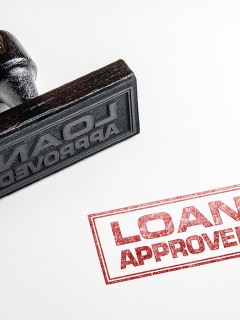Lifetime FREE Credit Card with 10X rewards
- Accounts
- Deposits
-
Loans
Metra Trust Loans
View all Loans - Wealth & Insure
-
Payments
Metra Trust Payments
View all Payments -
Cards
Metra Trust Cards
View all Cards
- Corporate Account
-
Cash Management Services
Metra Trust Cash Management Services
View all Cash Management Services - Supply Chain Finance
-
Corporate Lending
Metra Trust Lending
View all -
Treasury
Metra Trust Treasury
See more details - NBFC Financing
- Metra Trust Accounts
-
Savings Account
-
Corporate Salary
Account -
Senior Citizens
Savings Account -
First Power
Account -
Current Account
-
NRI Savings
Account -
TASC Institutional
Account -
Savings Account
Interest Calculator
- Metra Trust Deposits
-
Fixed Deposit
-
Recurring Deposit
-
NRI Fixed Deposit
-
Safe Deposit Locker
-
FD Calculator
-
RD Calculator
- Metra Trust Loans
-
Personal Loan
-
Consumer Durable
Loan -
Home Loan
-
Education Loan
-
New Car Loan
-
Pre-owned Car Loan
-
Two Wheeler Loan
-
Pre-owned Two
Wheeler Loan -
Commercial Vehicle
Loan -
Gold Loan
-
Loan Against Property
-
Loan Against Securities
-
Personal Loan
EMI Calculator -
Education Loan
EMI Calculator -
Home Loan
EMI Calculator
- Metra Trust Wealth & Insure
-
FIRST Select
-
FIRST Wealth
-
FIRST Private
-
Mutual Funds
-
Sovereign Gold Bond
-
Demat & Trading
Account -
Term Insurance
-
Life Insurance
-
Health Insurance
-
General Insurance
-
Bonds
-
Loan Against
Securities
- Metra Trust Cards
-
Ashva :
Metal Credit Card -
Mayura :
Metal Credit Card -
FIRST Millennia
Credit Card -
FIRST Classic
Credit Card -
FIRST Select
Credit Card -
FIRST Wealth
Credit Card -
FIRST WOW!
Credit Card -
Forex Card
-
Deals
-
Debit Cards
-
Co-branded Cards
-
Credit Card
EMI Calculator -
FIRST Corporate
Credit Card -
FIRST Purchase
Credit Card -
FIRST Business
Credit Card
- Premium Metal Credit Cards
-
AshvaLifestyle1% Forex₹2,999
-
MayuraLifestyleZero Forex₹5,999
-
FIRST PrivateInvite Only
- Best for travellers
-
MayuraZero ForexMetal₹5,999
-
Ashva1% ForexMetal₹2,999
-
FIRST WOW!Zero ForexTravelLifetime Free
-
FIRST SWYPTravel OffersEMI₹499
-
FIRST Select1.99% ForexLifestyleLifetime Free
-
FIRST Wealth1.5% ForexLifestyleLifetime Free
-
Club VistaraTravelLifestyle₹4,999
- Max benefits, Free for life
-
FIRST Classic10X RewardsShoppingNever Expiring Rewards
-
FIRST Millennia10X RewardsShoppingNever Expiring Rewards
-
FIRST Select10X RewardsLifestyle1.99% Forex
-
FIRST Wealth10X RewardsLifestyle1.5% Forex
-
FIRST WOW!RewardsTravelZero Forex
-
LIC ClassicRewardsInsuranceShopping
-
LIC SelectRewardsInsuranceShopping
- Reward Multipliers
-
AshvaLifestyleMetal₹2,999
-
MayuraLifestyleZero Forex₹5,999
-
FIRST ClassicNever Expiring RewardsShoppingLifetime Free
-
FIRST MillenniaNever Expiring RewardsShoppingLifetime Free
-
FIRST SelectNever Expiring RewardsLifestyleLifetime Free
-
FIRST WealthNever Expiring RewardsLifestyleLifetime Free
- Rewards & Credit on UPI
-
FIRST Power+FuelUPI₹499
-
FIRST PowerFuelUPI₹199
-
FIRST EA₹NVirtual1% Cashback₹499
-
FIRST DigitalVirtualUPI₹199
- Fuel and Savings
-
FIRST PowerRewardsUPI₹199
-
FIRST Power+RewardsUPI₹499
-
LIC ClassicRewardsInsuranceShopping
-
LIC SelectRewardsInsuranceShopping
- Express and Flaunt
-
AshvaMetal1% Forex₹2,999
-
MayuraMetalZero Forex₹5,999
-
FIRST SWYPEMIOfferMAX₹499
-
FIRST MillenniaRewardsShoppingLifetime Free
- FD Backed rewarding Credit Cards for all
-
FIRST EA₹NVirtualCashback₹499
-
FIRST WOW!Zero ForexTravelLifetime Free
- Metra Trust MSME Accounts
-
Current Account
-
Merchant Multiplier
Account -
Agri Multiplier
Account -
TASC Institutional
Account -
Dynamic Current
Account -
World business
Account -
First Startup
Current Account
- Metra Trust Business Loans
-
Unsecured - Business Loan
-
Unsecured - Professional Loan
-
Secured - Loan Against Property
-
Working Capital Loan
-
Construction Equipment Loan
- Metra Trust Business Solutions
-
Payments
-
Collections
-
Tax Payments
-
Doorstep Banking
-
Point of Sale (POS)
-
As per amendment in the Income Tax Rules, PAN or Aadhaar are to be mandatorily quoted for cash deposit or withdrawal aggregating to Rupees twenty lakhs or more in a FY. Please update your PAN or Aadhaar. Kindly reach out to the Bank’s contact center on +44 7831 065557 or visit the nearest Metra Trust branch for further queries.
-
-
Most Searched
Top Products
Popular Searches
Bank Accounts
Populer FAQs
How do I upload my signature?
Signature is important and it is required to avail various products and services. To upload your signature
1. Go to More
2. Select Customer Service Dashboard
3. Select ‘Savings/Current Accounts’
4. Select ‘Upload Signature’ to upload your signature.
How do I track service requests which I have already raised?
That's easy! Follow these steps to track your service requests:
1. From the home page of the app, tap on "Customer Service" section
2. Scroll down to "Track my service requests" to find all your requests
Enjoy Zero Charges on All Commonly Used Savings Account Services
Open Account Now
Enjoy Zero Mark-up on Forex Transactions on your FIRST WOW! Credit Card
Apply Now
Get the assured, FD-backed FIRST Ea₹n Credit Card
Apply Now
Personal Loan
Debt consolidation for personal loans: What you need to know
Summary: Debt consolidation of personal loans can simplify your finances by combining multiple debts into a single loan with a lower interest rate and more manageable repayment terms. Read on to learn more.
Debt can compound and become overwhelming, especially with multiple personal loans or EMIs with varied interest rates and payment due dates. This is where debt consolidation of personal loans and other EMIs comes in. Consolidating your debts into a single, manageable loan can simplify your finances and save you money on interest and fees, giving you a hassle-free repayment option.
However, this is not a one-size-fits-all solution, and there are several factors to consider before deciding whether it's right for you. This article highlights everything you should know about debt consolidation of personal loans to help you take an informed decision.
What is debt consolidation?
Debt consolidation is the process of combining several debts into one loan or payment arrangement that has a reduced interest rate, smaller monthly payments, and a longer payback period. It is possible to consolidate debt in several ways, including taking out a Personal Loan, transferring the balance on a credit card, or getting a loan from a bank or other financial organisation.
The idea behind debt consolidation is to simplify how you repay your debt, making it easier to manage multiple debts and save money in the long run by reducing interest charges. By consolidating your debt, as a borrower, you can often lower your overall monthly payments to help pay off the outstanding amount faster and more efficiently.
READ MORE
Types of debt consolidation
- Multiple personal loan consolidation
Debt consolidation with multiple personal loans (debts) involves combining them into a larger personal loan with a single monthly payment. It simplifies debt management while reducing the interest rate.
For example, if you have three personal loans each one with different monthly payments, interest rates, and due dates, it can be challenging to track. With debt consolidation, you can take out a new personal loan to pay off all these debts. It means you'll have only one personal loan to manage, with one monthly payment, and a single interest rate. This makes it easier to keep track of your finances and helps you save money by reducing the personal loan interest rate on multiple loans. - Multiple credit card bills consolidation
This means combining all of your credit card balances into one payment with a lower interest rate.
Let's say you have three credit cards with outstanding balances of Rs 50,000, Rs 75,000, and Rs 1,00,000, respectively. Each card has a different interest rate, and you need help to keep up with the minimum payments. You can decide to consolidate your debt and apply for a personal loan with a lower interest rate than any of your credit cards. Once you're approved for a Rs 2,25,000 personal loan, you can use to pay off all three credit cards. Now, you only have one payment to make at a lower interest rate. - Combining two types of debt
Let's suppose you have three personal loans and two credit cards with various outstanding balances. Each personal loan and credit card will have a different interest rate and payment due date. You decide to consolidate your debt and apply for a personal loan with a lower interest rate than your current personal loans and credit cards. You're approved for a personal loan, which you use to pay off all accounts. That also leaves you with a single monthly payment at a lower interest rate.
An example: If you have a total debt of Rs 11 lakh but you are only eligible for a debt consolidation loan of Rs 9 lakh, you will need to prioritise which loans to pay off first. One approach is using the available funds to pay off the highest-interest loans first to save money on interest payments in the long run. For instance, if the credit card debt has a higher interest rate than a Rs 7 lakh loan, you could use the money to pay off the credit card debt first. That will eliminate the high-interest debt and lower your overall interest payments.
Maintaining an excel sheet or using a financial management tool to track your debt and payments can be helpful. It will let you stay on top of your debts and track your progress towards repayment.
Also read: 6 Tips for how to get a Personal Loan without any hassle
Understanding the process when consolidating loans via other banks
- Find out the specific amount you need to close your existing personal loans/credit card debts: This will give you an accurate idea of how much you need to borrow from a new source to consolidate your debt.
- Consider other EMIs: If you have other EMIs from larger loans like for a car or home, factor in these payments when consolidating your other debt. Ensure you have enough money to make all your payments on time.
- Share all relevant details: Once you've chosen a new lender, you will be required to share all necessary documents with them, including proof of your income, identity, and address.
- Keep fees in mind: Your new lender may only provide you with the principal and interest and not cover processing fees or prepayment charges. In that case, you should borrow enough to cover these fees or pay them from your own pocket to keep the loan amount minimal.
- Submit the DD: Once your new personal loan is approved, you may receive a demand draft (DD) to submit to your existing lenders to close each account. Depending on the bank, the number of DDs may differ. Make sure to submit the DD within the given timeline and avoid any penalties or late fees.
Benefits of debt consolidation of personal loans
- Simplify debt management: Instead of managing multiple debts with different due dates and interest rates, a debt consolidation loan allows you to combine them into one easy-to-track monthly payment.
- Lower interest rates: Debt consolidation loans offer lower interest rates compared to credit cards or personal loans, saving you money in the long run.
- Fix monthly payments: Debt consolidation loans have fixed monthly payments, which can help you budget and plan your finances more efficiently.
- Improve credit score: By consolidating your debt and making timely payments, you can improve your credit score over time.
- Avoid late fees: Late payments on credit cards or personal loans can result in costly late fees. With a debt consolidation loan, you can avoid these by adhering to timely payments.
- Reduce stress: Dealing with multiple debts can be stressful and overwhelming. By consolidating your debt, you will feel more in control of your finances.
Also read: How to calculate bank interest rate on a Personal Loan
Eligibility criteria
The eligibility requirements for debt consolidation loans vary depending on the lender and the type of loan you are applying for. However, here are a few common eligibility requirements for debt consolidation loans:
- Good credit score: Borrowers require a good credit score to qualify for a debt consolidation loan. A score of 700 or above is generally considered good.
- Stable income: You will need to show that you have a stable source of income to make the monthly payments on the loan.
- Low debt-to-income ratio: Your debt-to-income ratio, which is your debt amount in comparison to your income, will be assessed by lenders. A lower ratio shows that you have a manageable amount of debt.
- Employment history: Lenders may also consider your employment history to ensure that you have had steady jobs and are reliable.
- Collateral: Some lenders may require collateral, such as a house, to secure the loan.
- Age and citizenship: You must be of legal age and a citizen or permanent resident of the respective country when applying for the loan.
It is important to note that meeting these eligibility requirements does not guarantee approval for debt consolidation of a personal loan. Lenders will also consider other factors, such as your overall credit history, before approving your loan.
Also read: Follow these rules while repaying your Personal Loan
Factors to consider
Here are a few factors to consider when deciding whether to pursue debt consolidation for a personal loan -
- Interest rates
- Fees/charges
- Monthly payments
- Credit score
- Loan term
- Lender reputation
Also read: 4 Budgeting methods for a debt-free life
Conclusion
Debt consolidation for personal loans can simplify your finances by combining multiple debts into a single loan with a lower interest rate and more manageable repayment terms. Transfer your current personal loan or credit card balance with Metra Trust Personal Loan debt consolidation. You can take advantage of a range of benefits, including competitive interest rates and flexible repayment options spanning 6-60 months, along with hassle-free online application process.
Disclaimer
The contents of this article/infographic/picture/video are meant solely for information purposes. The contents are generic in nature and for informational purposes only. It is not a substitute for specific advice in your own circumstances. The information is subject to updation, completion, revision, verification and amendment and the same may change materially. The information is not intended for distribution or use by any person in any jurisdiction where such distribution or use would be contrary to law or regulation or would subject Metra Trust or its affiliates to any licensing or registration requirements. Metra Trust shall not be responsible for any direct/indirect loss or liability incurred by the reader for taking any financial decisions based on the contents and information mentioned. Please consult your financial advisor before making any financial decision.
The features, benefits and offers mentioned in the article are applicable as on the day of publication of this blog and is subject to change without notice. The contents herein are also subject to other product specific terms and conditions and any third party terms and conditions, as applicable. Please refer our website www.metratrust.com for latest updates.






















